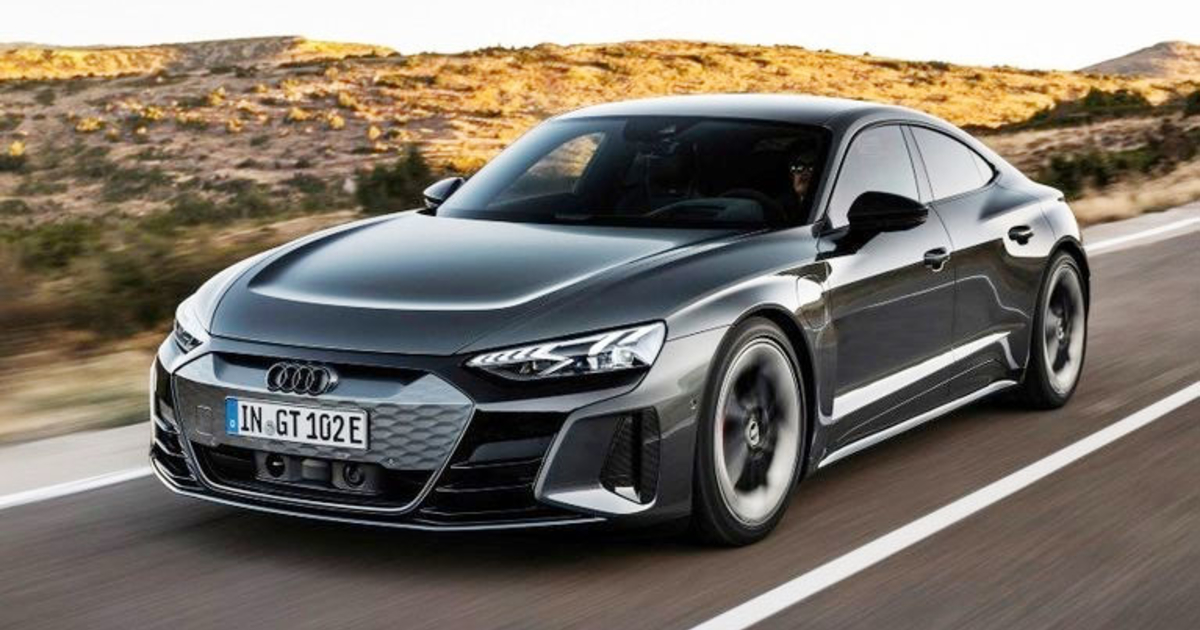
DETROIT — Battery-electric vehicles could command half of the market in the premium segments in as little as five years. Meanwhile, leasing will continue to be a challenge for premium brands as rising interest rates and inflation push up prices, the president of Audi of America said.
Daniel Weissland, 49, who has led Audi of America since 2019, said his brand and others in the premium space can’t accurately gauge the true demand for EVs right now because of production constraints that are limiting inventories. But, he said, the growth in acceptance and demand has been surprisingly fast.
“I think the tipping point [to majority EV] is coming much faster than we think in the premium segment,” Weissland said during a visit to Automotive News‘ offices here, putting a five-year time frame on hitting majority EV sales among premium brands. “I could be surprised, because of the Inflation Reduction Act, maybe it’s going to accelerate, especially in the lower segments, we probably see the tipping point even coming earlier.”
Weissland recalled assuming his current role in 2019 and talking to dealers about the brand’s first EV: the Audi E-tron crossover.
“Many dealers told me, ‘The E-tron’s nice, but it’s not really selling well. We need more Q5s and Q7s. Please don’t bring so many E-trons.’ But things have changed completely,” he said. “Now, every E-tron basically comes to the market mostly sold.”
Audi recently introduced the Q4 E-tron and Q4 E-tron Sportback, which share Volkswagen Group’s modular MEB platform with the VW ID4 and give the premium brand a new starting price point for its EV lineup at $49,995, including delivery. The additions give Audi dealers five EV nameplates, all under the E-tron subbrand, along with performance variants.
Through three quarters, automakers have sold 539,547 alternative-powered cars and light trucks in the U.S., up 33 percent from the previous year, according to the Automotive News Research & Data Center. The vast majority of those sales were of BEVs, though hybrid and hydrogen-powered vehicles are also included.
For Audi, sales of EVs are up 53 percent through the first three quarters to 11,920 compared with the previous year, helped by the addition of the Q4 E-tron and Sportback. All of its EVs were up over the same period of 2021 but still represent just under 9 percent of Audi’s 132,821 total U.S. sales so far this year.
Weissland also addressed concerns over how far and how quickly leasing has fallen at Audi as well as other premium brands as rising interest rates make leasing less attractive. Previously, well over half of Audi’s sales were leases, which have now fallen to 24 percent, year to date, an Audi spokeswoman later confirmed.
Like other luxury brands, Audi uses subvented leasing as a way to ensure that customers build a close relationship with their dealer and return at frequent intervals for new vehicles, giving dealers a ready supply of well-maintained off-lease inventory than can be sold as more-lucrative certified pre-owned vehicles.
He said dealers’ main concern continues to be with adequate supply from the factory, but that lease penetration is also a concern. Weissland said the factory and Audi dealers must work to “make sure the customer stays connected to the brand” regardless of how or whether they finance their purchase.
Weissland said Audi has been moving away from “a pure volume focus” to “focus more on quality, customer retention and all those things that make a customer happy and to fulfill the requirements that the customer wants. By doing that, putting more attention to that, hopefully we can increase our loyalty rates, our retention, and keep that customer in the family.”
If the customer “is happy, happy with the product, happy with the brand, happy with the service at the dealership,” Weissland asked, “why should he leave and go somewhere else?”